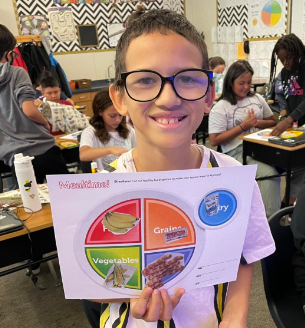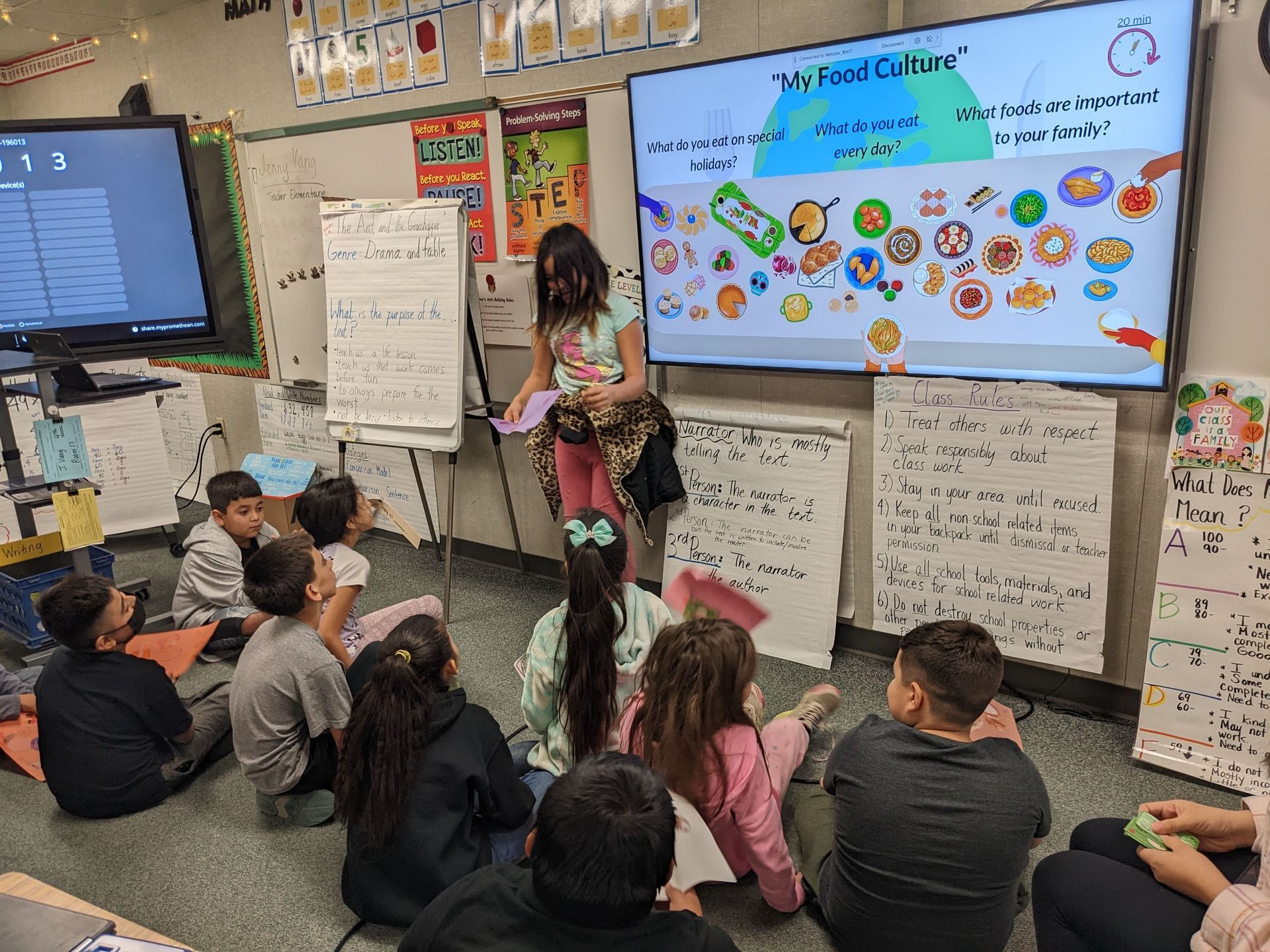
Call Us
(559) 485-1416
Email Us
info@fresnometmin.org
3845 N. Clark St. Suite 101,
Fresno, CA 93726
FRESNO METRO MINISTRY
Fresno Food Security Network
The Fresno Food Security Network (FFSN), staffed by Fresno Metro Ministry, promotes food security in Fresno County through cross-sector collaboration toward a more efficient, healthy food system. Over 200 leaders from 60 organizations are working together to change the fact that Fresno County is the 3rd highest food hardship county in the U.S. right in the middle of the most robust food-producing region in the world.
Fresno Metro’s FFSN holistically addresses food system issues by bringing community members together. Members come from diverse industries, government, public agencies, and non-profit sectors to promote local food systems' social, economic, and environmental health and equity.
The FFSN is a collaboration of community organizations and leaders committed to significantly increasing food access and healthy food consumption by utilizing standardized tools to address the diversity of community needs in Fresno County. It seeks to link its efforts with similar initiatives and programs across the San Joaquin Valley.
The FFSN’s six policy categories of focus:

Healthy Food Access:
Healthy, high-quality food is consistently and readily available, accessible, and affordable across all neighborhoods. Communities in an area know how to obtain and utilize culturally relevant and respectful foods.
• Desirable and high quality
• Nutrient-dense
• Easily attainable

Food Waste Prevention:
Food waste is food that is safe to eat and that is thrown away or left uneaten due to extra products from food businesses or consumer shopping and eating habits. The causes of food waste or food loss are many, and they happen at each step of the food system. While growing, being cut and cooked, being taken to stores, in stores, and when bought and eaten. Food waste prevention includes recovering safe-to-eat food, which also helps in reducing food waste.

Emergency Hunger Relief:
Gives food at no cost to those who need short-term hunger relief for only a short time (caused by natural disasters, COVID, etc.) Through places like emergency food pantries (food storage rooms), food banks, soup kitchens, and community meal programs.

Economic Development:
Involves sharing money and goods in a way that is best for the well-being of the local community and people. It focuses on being able to get housing, health care, good schools, parks, higher education, and everything in between.

Transportation, Land Use, and Regulation: Working with the local government to fix methods, rules, permits, and transportation. By simplifying rules, how to get permits, changing government codes, and transportation changes.

Equity, Resilience, & Results Evaluation:
To make sure that equity is the leading focus of the Food Policy Council. This will be done by reviewing the effects of policy regularly. And changing programs and investments to better serve the community based on those reviews. Utilizing data, mapping, and consistent and inclusive community engagement as tools. These methods will meet the community's needs for nutritional health and support more people being able to get healthy food. The support will be built through food businesses’ relationships with the community, racial equity, justice, trauma-informed approaches, and the building of permanent resources and programs.
For more information on the Fresno Food Security Network, you can read
the development strategy here.
-
Regional Community of Practice
The Fresno Food Security Network, launched, staffed, and facilitated by Fresno Metro Ministry, has been selected to participate in a community of practice focused on regional food systems development. After a thorough review of over 50 applications by a team of project organizers, 11 food policy councils from across the country were selected for the 18-month project, reflecting a diversity of approaches to regional food systems work. Regional food policy councils are collaborative groups that seek to address food-related issues across county and/or state boundaries. As part of this community, Fresno Food Security Network will help guide research and the creation of resources to support other councils in taking regional approaches to food system development.
The community of practice is a central part of a cooperative research project being led by the U.S. Department of Agriculture Agricultural Marketing Service (USDA AMS), Ohio State University, the John Hopkins Center for a Livable Future, and Colorado State University that aims to better understand regional approaches to strengthening food systems. Regional food policy work has emerged as a promising approach to developing equitable, sustainable, and vibrant food and agriculture systems. Yet, there is a need for more resources and information to support the work of food system practitioners at this scale.
In addition to the Fresno Food Security Network, the community of practice will include representatives from the Boston Food Access Council (MA), Cass Clay Food Partners (ND/MN), Columbia Gorge Food Security Coalition (OR/WA), Greater Cincinnati Regional Food Policy Council (OH), Hudson Valley Food System Coalition (NY), Just Foods Collaborative of Nash and Edgecombe Counties (NC), Metropolitan Washington Food Policy Directors/Food Security Coordinators Work Group (DC, MD, VA), Northwest Indiana Food Council (IN), Roanoke Foodshed Network (VA), and Western Prairie Food, Farm, and Community Alliance (KS).
-
Food Champions (Grades 4th-6th)
The Food Champions program through Fresno Metro Ministry was developed around the Fresno Food Security Network policy priorities for elementary students. Educating and engaging students in their local food system through local action, food stewardship, food waste prevention, and improving food access in their communities all while meeting Common Core ELA and Math, CA Health Education, and Next Generation Science Standards.
- Forming healthy eating habits through MyPlate.
- Following carrots through the Food System.
- Discovering crops and commodities grown in California.
- Finding how different fruits and vegetables are grown.
- Reading maps and learning about Food Insecurity in their neighborhood.
- Sharing and learning about food cultures in the world and their classrooms.
- Experimenting with food preparation and storage.
- Preventing food waste at home and in their cafeterias.
- Connecting their schools to Fresno Metro Ministry’s Food to Share Food Recovery program.
-
Future Food Leaders (Grades 9th-12th)
The Future Food Leaders program through Fresno Metro Ministry was developed around the Fresno Food Security Network policy priorities for high school students. Students from Fresno Unified and Central Unified high schools take part in virtual meetups with other student leaders to become advocates for a healthier, more equitable, and just food system. As they learn about the current challenges, they develop a local solution through a project to support their school or community.

MyPlate
Food Champions Program,
Fresno Metro Ministry
Robinson Elementary

MyPlate
Food Champions Program,
Fresno Metro Ministry
Robinson Elementary

Sharing Food Cultures
Food Champions Program,
Fresno Metro Ministry
Webster Elementary
Sharing Food Cultures
Food Champions Program,
Fresno Metro Ministry
Webster Elementary
Where Food Grows
Food Champions Program,
Fresno Metro Ministry
Webster Elementary
Hot Potato
Food Champions Program,
Fresno Metro Ministry
Webster Elementary
Worms & Compost
Food Champions Program,
Fresno Metro Ministry
King Elementary
Worms & Composting
Food Champions Program,
Fresno Metro Ministry
Heaton Elementary
MyPlate
Food Champions Program,
Fresno Metro Ministry
Robinson Elementary
MyPlate
Food Champions Program,
Fresno Metro Ministry
Robinson Elementary